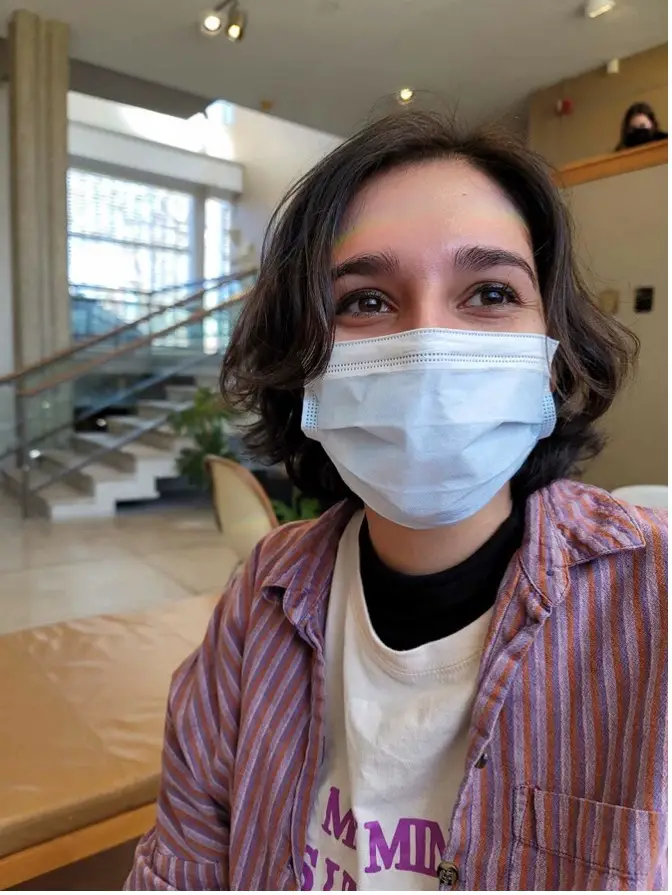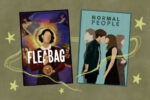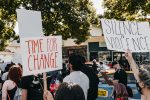At some point in the last five or so years, a new kind of narrator took hold of our bookshelves. To call her a protagonist feels simplistic and unjust — I can almost see her rolling her eyes and cringing inwardly at the word. But antiheroine isn’t much better, because, after all, the word “heroine” is just an appendage, an afterthought to its ancient masculine counterpart. And prefixing it with “anti” doesn’t really mend the problem — you’re still playing by the rules that were never made for you or other women in the first place. No, we need a new word for this new woman, a bolder word, something that would effectively capture the brazenness with which she barged into our literary consciousness.
Before we look for another way to label her, though, we should ask ourselves just who this woman is. You might recognize her from the novels of Ottessa Moshfegh, Sally Rooney or Halle Butler, along with a handful of works published by other authors in the last few years. The unnamed narrator of Moshfegh’s “My Year of Rest and Relaxation” is perhaps the most vile and disturbed of the bunch, sitting (or rather, sleeping) on the very end of the spectrum. On the opposite side, we have Selin from Elif Batuman’s “The Idiot,” who is less deranged but contemplative to the extreme, lost in her own head and unable to act.
Some of these characters are just plain cold, experts in emotional repression. Others are lost, unmotivated 20-somethings with a track record of sour relationships. And some are actively cruel, their very presence more toxic than a nuclear waste dump. They constantly shift between intense apathy and existential disgust. As Jess Bergman puts it in her article on the trend, these novels “are anchored by women who limply accept, if not actively seek, a sense of their own unreality.” None of them are easy to pin down, and they can be even harder to sympathize with, but against all possible odds, we’ve fallen in love with them anyway. How, and why?
When I sat down to ask myself that question, my mind instantly flitted to “Fleabag,” Phoebe Waller-Bridge’s incredible gift to humanity that never stops giving. Fleabag, the title character of the author’s critically acclaimed Amazon series, is an obscenely hilarious mess, pure and simple. She is wickedly judgmental, horny and deadpan in all the best ways, but the greatest thing about her is her never-ending capacity to surprise you. She’s everything women weren’t allowed to be on television until only recently: In her own words, “I have a horrible feeling I am a greedy, perverted, selfish, apathetic, cynical, depraved, morally bankrupt woman who can’t even call herself a feminist.”
If you’ve seen the show, it’s impossible not to think of her when contemplating this kind of character. In many ways, “Fleabag” is the blueprint. Sure, it could be a coincidence that most of the novels centering around these women were published after the show aired. But it’s more likely that Waller-Bridge was able to burst through the door that many female writers were aching to unlock. You might even say she broke the glass ceiling. However you choose to see it, “Fleabag” released something within the literary and entertainment world, and contemporary writers have been tapping into it ever since.
Even so, we can’t give “Fleabag” all the credit. There’s also an undeniable connection between this pattern in contemporary fiction and the Trump era. Before Trump, 21st century America was still able to convince itself that it was moderately sane, a much-needed harbinger of democracy and fairness. Trump changed all of that, not only by winning undemocratically but also by revealing and exacerbating sicknesses that have been poisoning us all along.
In the aftermath of Trump’s presidency, no educated liberal person in this country can deny the sheer chaos that has taken over our politics, and, by extension, our culture. Nearly one in five Americans believe in QAnon; Kanye West ran for president; over 2,000 violent white supremacists attacked the Capitol, and we’re still trying to deliver justice. All of these facts point to one conclusion: American politics has become unhinged. It can hardly be a surprise that our literary culture is reacting to that with characters that are dangerously close to becoming unhinged themselves.
It would be a mistake, however, to say that Trump fueled the ascension of this character all on his own. Though the former president obviously played a part in sparking the #MeToo movement, it has now moved way beyond his own gross misogyny and developed into a complex attitude in its own right. Its influence shines through in everything from workplace policies to Notes app apologies from celebrities. It’s also a major reason why “accountability” has become a buzzword, and “cancel culture” a hot topic for debate.
While these are all worth discussion, to me, they’re surface-level issues. The real importance of #MeToo comes down to the way that the trauma of women, for the first time in human history, has become almost acceptable to discuss in mainstream culture. Countless women, with or without positions of power, have come forward and shared their stories. What’s more, they have actually been met with support and their bravery has led to unprecedented systemic change. Of course, not everyone is listening, but a sizable number are and that number is only continuing to grow.
The rapid degeneration of American politics — paired with an increasing awareness of just how common gendered violence is and has always been — elucidates an origin for this new female character. But while these are significant parts of the puzzle, they certainly don’t give us the whole story. There’s another facet to these women that #MeToo and the Trump era can’t explain, which is the fact that they are almost always college-educated and privileged. Selin (“The Idiot”) goes to Harvard, Ava (“Exciting Times”) clearly benefits from her whiteness in Hong Kong, and the narrator of “My Year of Rest and Relaxation” pays for her decently sized apartment on the Upper East Side with her inheritance money, which tells you all you need to know.
Other characters who fit the model are less fortunate, forced to work minimum-wage jobs they hate or sacrifice their comfort for money. Yet, despite some differences, it’s clear that they are all products of a kind of 21st-century liberal ennui. These women are aware that something’s wrong — both on a personal and societal level — but are firmly convinced that, even with their privilege, they can do nothing about it. As a result, they’re left with biting, acerbic attitudes that alienate some readers and attract others. As Katy Waldman puts it, the authors behind these characters “[leave] their characters tuned to problems but unable to solve them.”
Putting aside any details of plot, the fundamental tension within these stories stems from the character’s emotional and social stuntedness, as well as the contradictions that follow: lonely but misanthropic; wanting and waiting, but for what? At their core, these women are experiencing a sheer lack — lack of motivation, fulfillment, meaningful relationships, or all of the above.
You could summon any number of explanations for why this character has enchanted us. But it truly comes down to the fact that the writers of these novels are reacting to the reality of living in the post-industrial, digital age. They’re using the literary form to document how late-stage capitalism has radically transformed our collective psyche. Work has long been drained of its meaning, leaving us to scramble for any semblance of personal impact. Internet culture has pretty much killed any last trace of sanity we had. Twitter threads have become our newspapers, not only changing the way we view facts and truth, but also isolating us more than ever before even while ensuring we’re more connected than ever before. And we haven’t even touched on the pandemic.
I’m willing to bet that one of the questions that drove writers like Moshfegh, Butler and Rooney to write these characters is a simple one: How do you process modern chaos while retaining your sanity? Authors answered this question by creating a new kind of woman who is allowed to have no idea what she wants or how to get it, who is more adept at spiraling out of control than writing emails, who rejects the template for her life that every woman before her accepted.
This woman is allowed the things we’re not. She may be spiteful and callous, self-hating and chronically indecisive, but the truth is, we need her now more than ever. One of the many functions of fiction is to highlight the snags in our systems, the symptoms of deeper problems that we loathe to acknowledge. I can’t help but suspect that this new, neurotic narrator is trying to tell us something. It’s about time we listened.

















